Current situation regarding the term of office of the President and the Verkhovna Rada during martial law
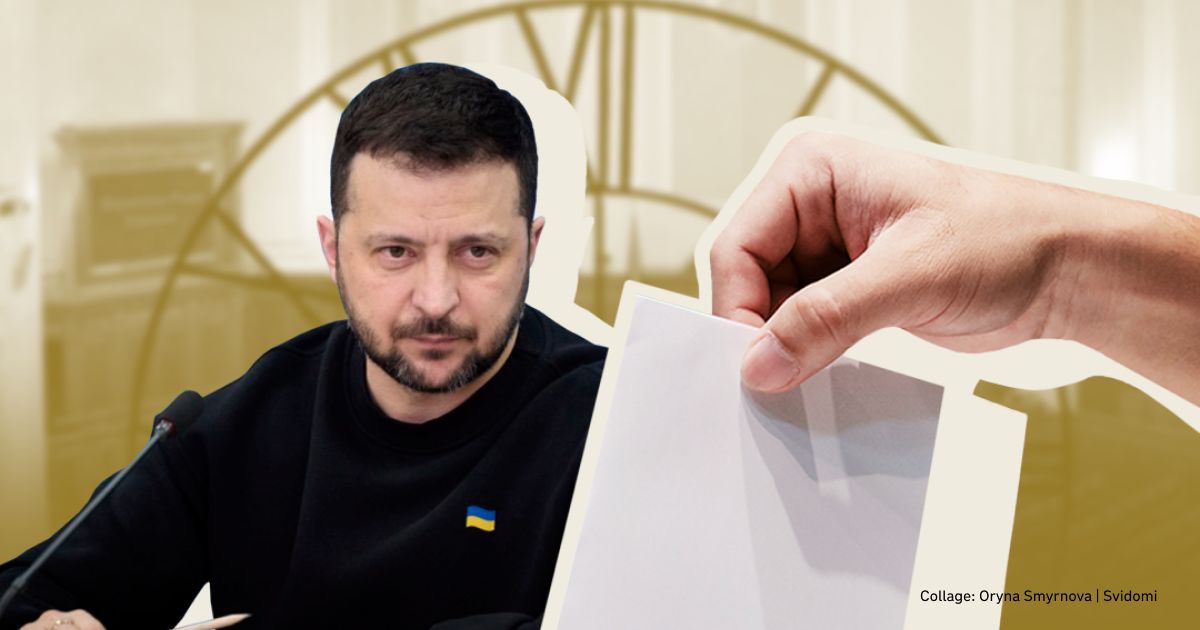
In Ukraine, the authorities imposed martial law on February 24, 2022, due to Russia's full-scale invasion, and it has been regularly extended since then. During this period, democratic activities such as mass gatherings, rallies and strikes, referendums, and elections — presidential, parliamentary, and local — are restricted.
However, the five-year term of the president expires in May 2024 and that of the Verkhovna Rada in July 2024. And the issue of elections, even during the active phase of the war with Russia, is being raised more often — both domestically and by partner countries.
Svidomi analyses the situation with the powers of the president and parliament and the possibility of holding elections during the war.
What does Ukrainian law state about the terms of office of the president and parliament during martial law?
Several articles in the Ukrainian Constitution regulate the terms of office of the President and the Parliament. These are Article 108, which states that 'the President of Ukraine shall exercise his powers until the assumption of office by the newly elected President of Ukraine', and Article 83, which deals with the powers of the Verkhovna Rada during martial law. The powers of the Parliament during martial law are extended until 'the day of the first meeting of the first session of the Verkhovna Rada of Ukraine elected after the cancellation of martial law or a state of emergency'.
This wording in the Constitution may lead to some ambiguity in interpretation. It could be argued that during martial law, the Constitution only clearly defines the term of office of the Verkhovna Rada. It does not specify the term of office of the President because the wording on the exercise of powers until the newly elected President takes office could be considered 'too vague'. Article 103 of the Constitution clearly defines the president's term of office as five years.
Russia is already using this 'legal ambiguity in the wording' to undermine the legitimacy of, and attitudes towards, the Ukrainian president. In February, the Defence Intelligence of Ukraine reported that Russia was preparing an information operation to destabilise the internal situation in Ukraine. DIU spokesman Andrii Yusov said that undermining the legitimacy of the president and parliament was part of the Russians' plans.
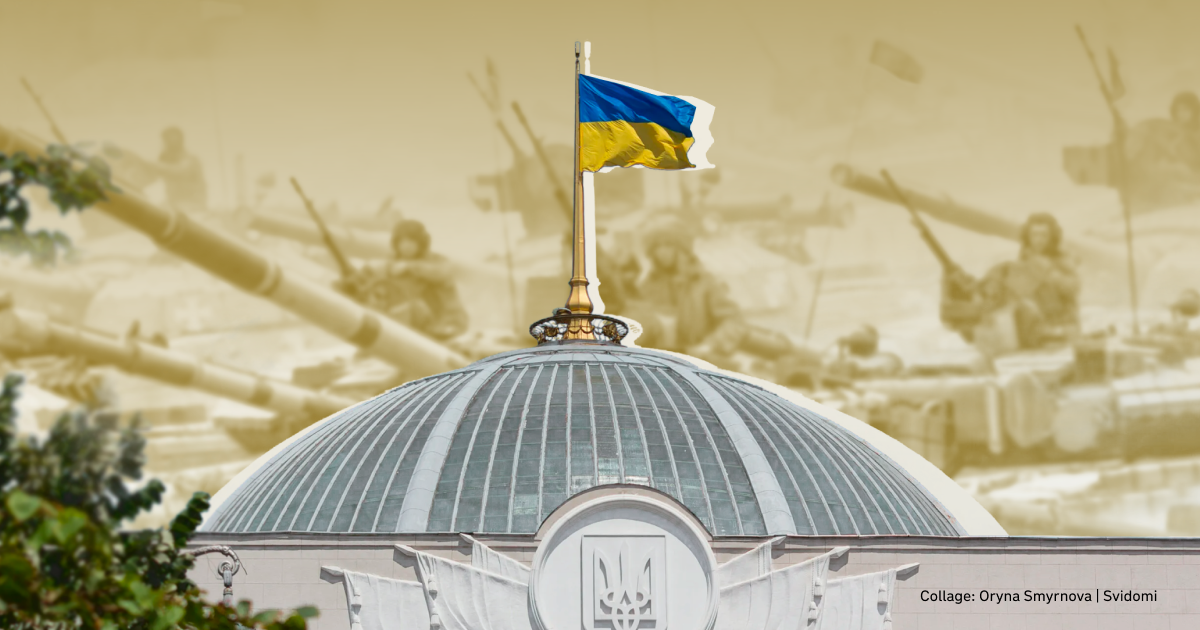
Ukrainian politicians have also expressed their own views on the president's term in office. In February, the former speaker of the Verkhovna Rada, Dmytro Razumkov, said that in May 2024, presidential powers 'should be transferred to the speaker of parliament, Ruslan Stefanchuk' and 'he will perform the functions of the president until a new president is elected and takes office'. According to Razumkov, elections should be held after the end of martial law.
Politicians in partner countries are also raising the issue of elections. For example, US Senator Lindsey Graham called on the Ukrainian authorities to hold presidential elections in 2023. "I cannot think of a better symbol for Ukraine than to hold free and fair elections during the course of a war," said Senator Graham, explaining his request. The White House said it was “not pressuring” Ukraine to hold elections — presidential or parliamentary.
Kateryna Hryshchenko, a lawyer and analyst with the DEJURE Foundation, says to Svidomi that the Constitution and its provisions should be perceived systematically rather than looking at articles and their wording separately.
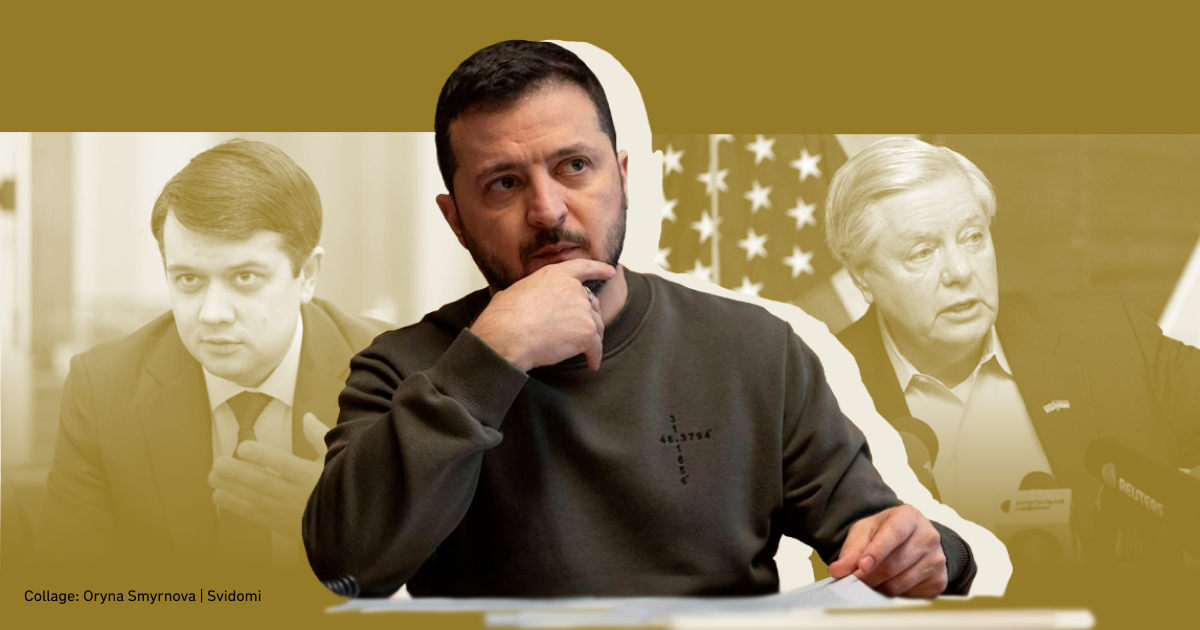
"If we look at the whole picture of how elections should be held in accordance with the Constitution, we will see that the Constitution has the same requirements for both presidential and parliamentary elections. The Constitution explicitly prohibits holding parliamentary elections during martial law, so we can look at this systematically and say it will be equally impossible for presidential elections. That is, it is a universal and equal suffrage," she explains the interpretation of the Constitution.
Kateryna Hryshchenko also explains that it is legally impossible to undermine the legitimacy of the president with such a 'wording' in the Constitution.

"We are looking at the provision that the president exercises his powers until the newly elected president takes office. We are looking at the requirements for holding elections. We can even look at foreign experience. Many constitutions have provisions that prohibit holding elections during martial law or a state of emergency. It is impossible to hold free democratic elections under such conditions,"
she concludes.
Article 228 of the Polish Constitution, for example, explicitly prohibits the election of the Sejm, the Senate, and the President during a state of emergency or martial law.
What is the current situation in the Verkhovna Rada, and is it possible to hold elections in Ukraine if the parliament decides to do so?
As of April 2024, the Verkhovna Rada has 401 MPs. According to the law, half of them are elected on party list, and half are elected by majority vote. If an MP from a list resigns, he or she is replaced by the next candidate in line.
However, majority MPs must be elected separately in electoral districts. Therefore, a mass resignation of majority MPs could set a dangerous precedent and block the work of the parliament, as there is no way to replace them.
The Verkhovna Rada has enough problems today. It is physically impossible to re-elect some majority deputies because their electoral districts are occupied. Criminal cases have been opened against a number of deputies for corruption, fraud and treason. MPs from the banned pro-Russian party Opposition Platform — For Life are also still in parliament.

Elections could change the composition of the Verkhovna Rada and stabilise its work. According to the Chesno movement, MPs held only four sessions in March. The situation did not improve in April, with only four sessions. For comparison, in February 2022 — under the threat of occupation of Kyiv — MPs held eight plenary sessions.
Kateryna Hryshchenko explains that even if the law on elections under martial law is adopted, it will be impossible to hold them in practice.
"In order to hold elections, it is not enough to have some kind of reference in the law or not to have a reference in the law. There must be conditions not only for the election itself but also for the election campaign. Conditions to ensure the safety of the people who are going to vote. It is impossible to do all this under martial law," says the lawyer.

She also reminds us that MPs cannot simply resign and leave — the Verkhovna Rada must give its consent. Therefore, if the number of MPs approaches the critical number required for the Rada to function (two-thirds of the members, or 300 MPs — ed.), the Verkhovna Rada can block the decision to resign.
"The parliament understands this, so it will not vote for such a resignation, and therefore, this risk is probably not so real. I hope that these majority MPs will be wise enough not to do it," concludes Kateryna Hryshchenko.
In his address in November 2023, President Volodymyr Zelenskyy said that elections are not on time.
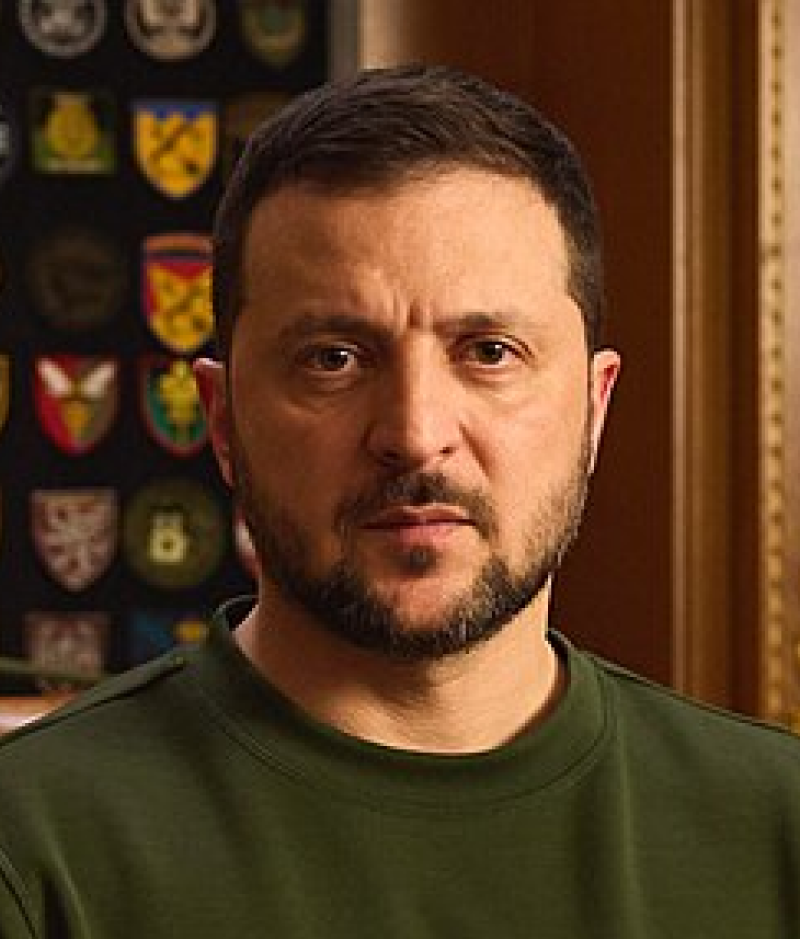
"We must decide that now is the time for defence, the time for a battle on which the fate of the state and the people depends, and not the time for the sham elections that only Russia expects from Ukraine,"
he said.
Should the Constitutional Court intervene?
Discussions about the possibility of holding elections during martial law and publications on social media continue. The question is who should put an end to this problem.
About a hundred Ukrainian human rights organisations issued a statement to the state authorities in 2023 demanding that elections not be held during martial law.
The speaker of parliament, Ruslan Stefanchuk, declared in January 2024 that 'it has been decided not to hold elections during martial law'.
The Central Election Commission has also commented on the issue of martial law elections. The CEC told Glavkom media that according to martial law, the president's powers cannot be terminated. According to Article 77 of the Electoral Code, the Verkhovna Rada calls the presidential elections. It is, therefore, impossible to hold elections without a parliamentary decision.
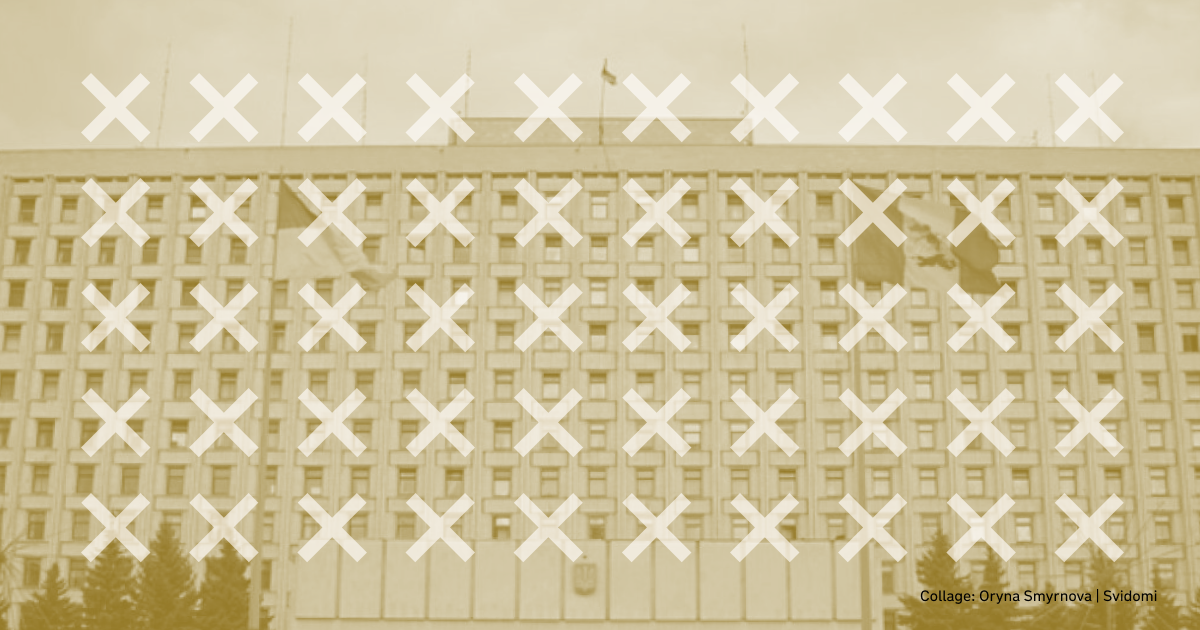
The final decision could be taken by the Constitutional Court. Its duties include officially interpreting the Constitution and comparing legislation with it.
However, the court itself is currently in an unstable state. After the term of the previous head of the court, Oleksandr Tupytskyi, expired in May 2022, no new head of the court was elected. Serhii Holovatyi is currently serving as Chairman. As of April 2024, the Court had 13 members but should have 18. In February, President Zelenskyy signed a decree on a competitive selection procedure for a judge of the Constitutional Court, which is currently underway.
Kateryna Gryshchenko, an analyst with the DEJURE Foundation, says that asking the Constitutional Court to clarify the terms of office of the president and parliament and the possibility of holding elections during martial law is a bad idea.

"Given how many ambiguous decisions the Constitutional Court has made in the past, and given that there are still judges there who were appointed during the Yanukovych era, and given that the government still likes to look for ways to influence judges, I think that an appeal to the Constitutional Court might just be a Pandora's box that should not be opened,"
she said.
In February, Ukrainian media reported that "the President's Office is preparing an appeal to the Constitutional Court on presidential powers". Fedir Venislavskyi, a lawmaker from the Servant of the People (Sluha Narodu — ed.) party, told RFE/RL that MPs would not go to court over the issue because 'Article 108 gives a clear answer to this question'.
Hryshchenko says the issue is not the wording of the constitution and legislation in general but the real impossibility of holding elections during a war.
"If we really want to have real elections, not like in Russia, where everyone just voted and pretended to have elections and told everyone 'how democratic everything is'. For us to have a real political process, we need to win the war first and then talk about elections. So maybe we just need to shift the focus of the discussion to what are the most pressing issues today," she concludes.


